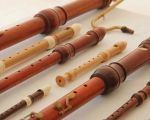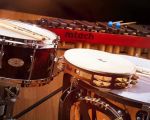Why Proper Piano Maintenance is Essential
As a passionate pianist, I quickly realized that taking care of my instrument is just as important as practicing. A piano is a beautiful and delicate piece of machinery, and regular maintenance ensures that it remains in great condition for years to come. Over the years, I’ve learned that proper cleaning and maintenance not only preserve the piano’s aesthetic but also enhance its sound and longevity.
In this article, I’ll share my personal experiences and detailed tips on how to clean and maintain your piano. Whether you have an upright, grand, or digital piano, the steps I’ll cover apply to various types of pianos, ensuring that your investment remains in top shape.
Regular Cleaning: The First Step to Maintaining Your Piano
One of the most fundamental aspects of piano care is regular cleaning. I’ve always been amazed at how much dust, dirt, and grime can accumulate on a piano if left unchecked. Not only does this affect the appearance of the instrument, but dust can also interfere with the movement of the keys and pedals. I’ve learned that a few minutes of cleaning each week can make a huge difference in keeping my piano looking and functioning like new.
Here’s how I typically clean my piano:
- Dusting the Exterior: I use a soft, lint-free cloth to dust the entire exterior of the piano. For an added shine, I occasionally use a gentle furniture polish that’s safe for wood. I make sure to avoid harsh chemicals that could damage the finish.
- Cleaning the Keys: I dampen a cloth with water (never soak it) and wipe the keys carefully. For stubborn stains, I use a mixture of water and mild soap, but I always test it on a small area first to make sure it won’t damage the surface. I finish by drying the keys with a clean, dry cloth.
- Polishing the Pedals: The pedals of the piano tend to collect fingerprints and dirt. I use a microfiber cloth to clean and polish the pedals, giving them a nice, smooth finish.
Maintaining the Interior: Tuning, Humidity, and Regulation
Cleaning the exterior is just one part of piano maintenance; taking care of the inner workings of your instrument is equally important. I remember the first time I had my piano tuned—it was like hearing the instrument in a completely new light! Over time, I realized that tuning and regulating the piano are key to maintaining its performance.
Here are some tips for maintaining the internal mechanics of your piano:
- Tuning: Regular tuning is essential to ensure that your piano stays in perfect pitch. I have my piano tuned at least once a year, but if you play frequently or notice that certain notes sound off, consider getting it tuned more often. The best time to tune a piano is during the spring or fall, as extreme temperatures can cause the piano to go out of tune more quickly.
- Humidity Control: Pianos are sensitive to humidity, and over time, the wood can expand or contract depending on the moisture in the air. To protect my piano from humidity damage, I always make sure the room where the piano is kept has consistent temperature and humidity levels. A room that’s too dry or too damp can lead to cracking, warping, or poor performance. I invested in a humidity control system for my piano, which has helped keep it in great shape.
- Regulation: Over time, the moving parts inside your piano may need adjustments. This includes regulating the action and the hammers. I personally had a technician come in once every few years to do this, and it made a world of difference in the responsiveness of the keys and the overall playability of the piano.
Protecting Your Piano from Environmental Damage
Environmental factors, like sunlight, dust, and temperature fluctuations, can negatively affect your piano’s condition. I’ve learned this the hard way after one of my pianos developed some damage from being placed near a window. Here are a few protective measures I now take to safeguard my instrument:
- Avoid Direct Sunlight: I always make sure my piano is placed in a location that is not exposed to direct sunlight for long periods. Sunlight can damage the finish and cause the wood to warp over time. I use curtains or blinds to filter the light if needed.
- Keep It Away from Heat Sources: Pianos should be kept away from heaters, air conditioners, and fireplaces, as extreme temperatures can cause the wood to crack or the strings to go out of tune. I also avoid placing the piano near vents, as the airflow can dry out the instrument.
- Use a Piano Cover: When I’m not playing, I always cover my piano with a dust cover. It helps protect the keys and the surface from dust, dirt, and spills. It also prevents pets or small children from accidentally damaging the piano.
Cleaning Your Digital Piano: Special Considerations
If you own a digital piano, the cleaning process is slightly different from acoustic pianos. I’ve found that digital pianos tend to collect dust on their screens and buttons, so regular cleaning is especially important. Here’s how I clean my digital piano:
- Wiping Down the Surface: I use a soft, damp cloth to wipe down the entire surface of the piano. I avoid getting moisture near the buttons or screen.
- Cleaning the Keys: Just like with an acoustic piano, I gently wipe the keys with a damp cloth. If necessary, I use a mild soap solution for stubborn stains. I also make sure to avoid any cleaning solutions that could damage the sensitive electronics inside.
When to Call a Professional
While regular cleaning and basic maintenance are things I can do on my own, there are times when calling a professional is necessary. I learned that certain tasks require specialized knowledge and tools to avoid causing damage to the instrument. Here are a few times when I call in a technician:
- Tuning: Although I can tune my digital piano on my own, acoustic pianos should always be tuned by a professional. A technician has the experience to adjust the strings properly, ensuring your piano sounds perfect.
- Action Regulation: If you notice that the keys are sticking or don’t respond as smoothly as they should, it’s time to call in a technician to regulate the action and adjust the internal components.
By following these maintenance tips and taking proper care of my piano, I’ve been able to enjoy the same instrument for many years without compromising its sound or performance. With a little effort, your piano can continue to bring beautiful music into your life for a lifetime.








